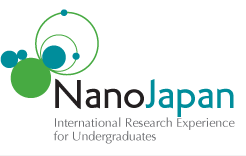

Just as when you are in the U.S. it is vitally important for all students to take necessary safety precautions and to know what to do in case of emergency. This is doubly important when you are abroad and are unfamiliar with the language and the culture. This page contains a range of helpful steps you can take to stay safe while you are abroad. Much of this information is taken from the U.S. Department of State's online Travel Resources and Students Abroad websites.
The NanoJapan Program takes the safety of our student participants and program staff very seriously and have in place an emergency response plan for the NanoJapan Program in case of emergency, natural disaster or other extraordinary event. This plan includes:
We do acknowledge that neither the Japanese or U.S. government nor the NanoJapan Program can 100% guarantee safety and health while abroad, as we could not do with a domestic program either. However, we believe that the NanoJapan Program has developed a solid emergency and safety response plan, adheres to all Rice Universitiy policies and procedures for faculty-led programs abroad, provides our students with insurance coverage appropriate to respond in cases of international emergencies, and believes that our processes will help ensure that students have full access to all U.S. government resources that may be available in the event of a major natural or other disaster while in Japan.
NanoJapan students are responsbile for adhering to all university policies and requirements and abiding by the laws of Japan while they are abroad. It is the responsibility of each individual student to carefully review all information provided and to take responsibility for basic safety, health, and security proceedures while abroad. Students with questions should contact nanojapan@rice.edu.
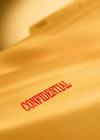 The Family Educational Rights and Privacy Act (FERPA) is a federal law designed to protect the privacy of, and limit access to, student educational records. FERPA provides for each institution to identify certain information as directory information, which may be disclosed without the student's permission. For the NanoJapan program this means that the only information we will post on our website or share without your prior, written authorization includes:
The Family Educational Rights and Privacy Act (FERPA) is a federal law designed to protect the privacy of, and limit access to, student educational records. FERPA provides for each institution to identify certain information as directory information, which may be disclosed without the student's permission. For the NanoJapan program this means that the only information we will post on our website or share without your prior, written authorization includes:
* This information will only be provided to other NanoJapan students, NanoJapan program administrators and faculty, research host laboratories, and the Rice University Study Abroad and Risk Management offices.
** Students may elect to readact or mark as private any information from their Weekly Reports that they do not want posted online
If you do not want the information indicated above released you must notify the NanoJapan program of this in writing. Under FERPA we cannot share any other identifying information on you without your prior, written authorization. If we are contacted by a family member, friend, or other individual asking for additional information on your status or whereabouts we cannot legally give this out. We can take down their name and contact information and share this with you directly so that you can decide whether you would like to contact this person or not. This is done for your privacy, safety, and security.
We ask that all NanoJapan students individually provide their family, friends, and other trusted individuals with your contact information in Japan, including your Japanese cell phone number, and maintain regular and consistent contact with your loved ones back home. It is especially important that you call or send an email home within 24 hours of arrival in Japan to let your family know that you have arrived safely. When you register with the U.S. Embassy please also be sure you list all of the individuals, including family and friends, who you would like to be notified in case of an emergency abroad.
Please also be sure your family is aware of the time difference between the U.S. and Japan. If they contact you late at night in Japan and/or during the daytime hours when you are working in the lab or in classes you may not be available to take their call. Use the Time Zone Convertor to determine when the best time will be for you to speak with your family and friends back home and set up a regular time for phone calls with your family and realistic expectations for when you will check and respond to email.
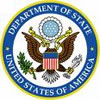 The U.S. Department of State maintains a wide array of helpful information online via their Travel Resources and Students Abroad websites. More detailed information on safety in Japan can also be found on the U.S. Citizen Services website of the U.S. Embassy in Japan. Much of the information found on this page is taken from these resources.
The U.S. Department of State maintains a wide array of helpful information online via their Travel Resources and Students Abroad websites. More detailed information on safety in Japan can also be found on the U.S. Citizen Services website of the U.S. Embassy in Japan. Much of the information found on this page is taken from these resources.
Your behavior abroad is your responsibility and you should think carefully about the consequences before acting. There are certain rather obvious precautions that American students abroad can take:
 Prior to arrival in Japan, the NanoJapan Program will register all students with the US Embassy via their Smart Traveler Enrollment Program group registration process. Registering with the U.S. Embassy enables them to contact you and the individuals you have named in your emergency contact list in case of natural disaster or emergency abroad. Through STEP registration, you will automatically be enrolled to receive regular the monthly American Citizen Services Newsletter, formerly known as the Warden System.
Prior to arrival in Japan, the NanoJapan Program will register all students with the US Embassy via their Smart Traveler Enrollment Program group registration process. Registering with the U.S. Embassy enables them to contact you and the individuals you have named in your emergency contact list in case of natural disaster or emergency abroad. Through STEP registration, you will automatically be enrolled to receive regular the monthly American Citizen Services Newsletter, formerly known as the Warden System.
StudentsAbroad.com is a resource for students at all colleges and universities around the world contemplating studying abroad. Unlike other study abroad websites, the information on StudentsAbroad.com provides insight on the importance of health and safety awareness for each country specifically. Our website includes 48 country-specific study abroad handbooks, which give students the details necessary to hit the ground running and learn the ins and outs of their destination. While our general handbook is designed as a global guide, it enriches all students' understanding so they may safely and smoothly navigate their host country and become savvy travellers empowered to get the most out of their study abroad experience.
NanoJapan students are encouraged to review the following pages of the StudentsAbroad.com website:
![]() To ensure that you are able to easily contact program administrators in Japan and your research lab group it is vital that all students have a Japanese cell phone that can also be used in case of emergency abroad. All NanoJapan participants are required to rent a Pre-Paid Japanese Cell Phone via Piccell Wireless prior to departure. You will be billed for your monthly cell phone usage via credit card meaning you will never run out of minutes and your phone will always be available to use in case of emergency.
To ensure that you are able to easily contact program administrators in Japan and your research lab group it is vital that all students have a Japanese cell phone that can also be used in case of emergency abroad. All NanoJapan participants are required to rent a Pre-Paid Japanese Cell Phone via Piccell Wireless prior to departure. You will be billed for your monthly cell phone usage via credit card meaning you will never run out of minutes and your phone will always be available to use in case of emergency.
Incoming phone calls to your Japanese cell phone number are free and this phone will be used by the NanoJapan program to contact you in case of emergency. You should program the following numbers into your cell phone (along with all applicable international dialing codes) and also keep a written copy of these numbers with you at all times.
Remember - 911 does not work in Japan! Program in the correct emergency numbers for Japan as listed below.
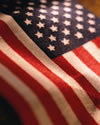 The caller will need to dial 011 followed by the Japanese Country Code (81) and then your phone number.
The caller will need to dial 011 followed by the Japanese Country Code (81) and then your phone number.
Example: If your parent's wanted to call the NanoJapan Program Representative in Japan's mobile number they would dial: 011 81 90-7699-0699.
 If you are calling a Japanese mobile number you will need to add a 0 at the front of the phone number.
If you are calling a Japanese mobile number you will need to add a 0 at the front of the phone number.
Example: To call the NanoJapan Program Representative in Japan's mobile from your Japanese mobile you would dial 090-7699-0699
 When placing an international call using your Japanese cell phone dial the Value Code prefix (0033-010) followed by the US country code (1) and then the area code followed by the number.
When placing an international call using your Japanese cell phone dial the Value Code prefix (0033-010) followed by the US country code (1) and then the area code followed by the number.
Example: To call the NanoJapan program office in the US from your Japanese mobile you would dial: 0033-010-1-713-348-6362
 Japan drives on the left side of the street and this is one of the most difficult things for Americans to get used to when they first arrive in Japan. Before crossing any street be sure to look BOTH ways and always cross streets at the crosswalk. You will almost never see someone in Japan jaywalk or cross against traffic when the green crosswalk sign is not lit.
Japan drives on the left side of the street and this is one of the most difficult things for Americans to get used to when they first arrive in Japan. Before crossing any street be sure to look BOTH ways and always cross streets at the crosswalk. You will almost never see someone in Japan jaywalk or cross against traffic when the green crosswalk sign is not lit.
Know where you are going when you leave. Just like in any big city, a foreigner holding a huge map could invite trouble. Take time to study a map before you go out, and get to know your city's layout and culture. Always carry your cell phone with you and make sure it is charged. Subway or train stations typically have neighborhood maps you can look at prior to exiting the station and if you have questions there are usually staffed Information Desks available with station workers willing to assist you - though you will need to make use of your Japanese language skills.
Observe local behaviors. Cues will be different than what you are used to. In particular, body language is not universal. Your actions may be interpreted very differently than you intended. For example, Americans often present conflicting body language to what they say, such as smiling while saying no. Be aware of your own mixed signals. Remember that safety in numbers is a smart idea wherever you are.
 Japan is the most seismically active piece of real estate in the world. The Tokyo metropolitan area experiences regular tremors of varying intensities and the probability that a severe and damaging earthquake will occur is high. The consequences of such a quake will vary greatly depending upon the time of day and year that the quake occurs, and no one can predict with any certainty what conditions will be like immediately following an intensive shock. All students should review the U.S. Embassy in Tokyo's website on Emergency Preparedness for Americans in Japan.
Japan is the most seismically active piece of real estate in the world. The Tokyo metropolitan area experiences regular tremors of varying intensities and the probability that a severe and damaging earthquake will occur is high. The consequences of such a quake will vary greatly depending upon the time of day and year that the quake occurs, and no one can predict with any certainty what conditions will be like immediately following an intensive shock. All students should review the U.S. Embassy in Tokyo's website on Emergency Preparedness for Americans in Japan.
In the event of a major earthquake NanoJapan students attempt to contact the NanoJapan Program Representative in Japan and/or the NanoJapan Program Office/Rice University as soon as safely possible. make sure they are familiar with earthquake emergency procedures and precautions for their safety. In the event of a major earthquake follow all instructions given by your lab, housing, or the building where you are in and try to bring your cell phone with you if asked to leave the building.
Role of the Embassy: The Japanese Government will be responsible for assisting foreigners immediately after a major earthquake. Telephone services may be severely overloaded and the Japanese Government will restrict phone use to priority users. Nonetheless, the Embassy will quickly want to ascertain the welfare and whereabouts of American Citizens. To aid in this process, American citizens should cooperate with Japanese authorities at evacuation sites and clearly identify themselves as Americans. The Embassy will help you get information about the situation and communicate with Japanese government officials if necessary in order to obtain proper food, shelter and medical attention. We will pass as much information as possible about the welfare of individual U.S. citizens back to the Department of State in Washington, D.C. so that this information may be shared with your families, friends and employers.
 Tsunamis are ocean waves produced by earthquakes or underwater landslides. The word is Japanese and means "harbor wave," because of the devastating effects these waves have had on low-lying Japanese coastal communities. If a major earthquake is felt, a tsunami could reach the beach in a few minutes, even before a warning is issued. Areas at greatest risk are less than 25 feet above sea level and within one mile of the shoreline. Most deaths caused by a tsunami are because of drowning. Associated risks include flooding, contamination of drinking water, fires from ruptured tanks or gas lines, and the loss of vital community infrastructure (police, fire, and medical facilities). The U.S. Embassy in Tokyo's website contains more information about Tsunamis. All students should review the U.S. Embassy in Tokyo's website on Emergency Preparedness for Americans in Japan.
Tsunamis are ocean waves produced by earthquakes or underwater landslides. The word is Japanese and means "harbor wave," because of the devastating effects these waves have had on low-lying Japanese coastal communities. If a major earthquake is felt, a tsunami could reach the beach in a few minutes, even before a warning is issued. Areas at greatest risk are less than 25 feet above sea level and within one mile of the shoreline. Most deaths caused by a tsunami are because of drowning. Associated risks include flooding, contamination of drinking water, fires from ruptured tanks or gas lines, and the loss of vital community infrastructure (police, fire, and medical facilities). The U.S. Embassy in Tokyo's website contains more information about Tsunamis. All students should review the U.S. Embassy in Tokyo's website on Emergency Preparedness for Americans in Japan.
If you feel a strong earthquake when you are on the coast:
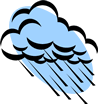 A typhoon (known in the US as a hurricane) is a large tropical cyclone. These storms, accompanied by heavy rainfall, can cover areas of up to 500 miles (800 km) in diameter and generate winds up to 180 miles (290 km) an hour. The typhoon season in Japan runs from May through October, with most activity from July to September. The US Embassy in Tokyo's website contains more information on Typhoons. All students should review the U.S. Embassy in Tokyo's website on Emergency Preparedness for Americans in Japan.
A typhoon (known in the US as a hurricane) is a large tropical cyclone. These storms, accompanied by heavy rainfall, can cover areas of up to 500 miles (800 km) in diameter and generate winds up to 180 miles (290 km) an hour. The typhoon season in Japan runs from May through October, with most activity from July to September. The US Embassy in Tokyo's website contains more information on Typhoons. All students should review the U.S. Embassy in Tokyo's website on Emergency Preparedness for Americans in Japan.
If a major storm is approaching your research lab or housing should keep you informed of the status and let you know of any preparations you should make. You can also follow the media coverage of storms or other weather events through English-language newspapers such as the Japan Times, Daily Yomiuri, or Asahi Shimbun as news broadcasts and radio coverage will likely only be available in Japanese.
Our research and education team members have visited Sendai regularly since 2011 and in 2012 - 2014 we placed NanoJapan students at Tohoku University with no incident. Sendai city itself was not affected by the tsunami and most buildings that were damaged by the earthquake only incurred minor damage and are undergoing or have already completed repair. Japan has invested heavily in recovery and repair efforts in the region and our colleagues at Tohoku University have indicated that these infrastructure investments will be of long-term benefit to the region.
We believe that based on the current information available from the Japanese government and the recommendations of the U.S. Department of State that it is safe for us to send students to Sendai. To review excerpts from weekly reports the 2012 - 2014 students who conducted research in Tohoku see their profiles at the NanoJapan Student Profiles page. We have also been in regular communication with the NSF Tokyo office regarding current conditions in the Sendai area. We know that the NSF continues to send East Asia Pacific Summer Institute Graduate Student fellows to Tohoku University in Sendai for summer research.
The US embassy's website provides a lot of information about radiation, about health and safety in the event of earthquakes, etc. and it also includes a lot of helpful links, to US and Japan-based sources.
The following Japanese government or institution sites also provide detailed information on the current status of radiation and safety in Japan.
The U.S. Department of State Country Information Sheet for Japan also contains detailed information on radiation related concerns under the Disaster Preparedness section which is found within the Local Laws and Special Circumstances section at http://travel.state.gov/content/passports/english/country/japan.html.
Sendai does not fall within the Japanese-government designated "Deliberate Evacuation Area" near the Fukushima plant that is a restricted area for everyone. Outside of this zone the Japanese government places no restrictions on traveling or habitation. Due to an abundance of caution, the U.S. Department of State does recommend that citizens avoid stays of more than one year in areas within 80 KM of the Fukushima Daiichi Nuclear Power Plant. Sendai is about 70 miles or 121 KM from Fukushima Power Plant, well outside the "abundance of caution zone. " Moreover, NanoJapan students will only be in Sendai for eight weeks so this would be classified as a short-term stay under the State Department Guidelines.
 While in a foreign country, a U.S. citizen is subject to that country's laws and regulations, which sometimes differ significantly from those in the United States and may not afford the protections available to the individual under U.S. law. The NanoJapan program cannot intervene if you are arrested or prosecuted for violation of local laws, including laws on drug use, currency exchange, and disturbances of the peace. What may seem to you like a harmless prank may have serious consequences. Do not assume that, as an American or a student, you will be treated leniently; the opposite is often the case. If you do become involved in any legal problems, notify NanoJapan as soon as possible and ask to speak to your consular representative. More information is available on the US Embassy in Tokyo's Arrests in Japan page.
While in a foreign country, a U.S. citizen is subject to that country's laws and regulations, which sometimes differ significantly from those in the United States and may not afford the protections available to the individual under U.S. law. The NanoJapan program cannot intervene if you are arrested or prosecuted for violation of local laws, including laws on drug use, currency exchange, and disturbances of the peace. What may seem to you like a harmless prank may have serious consequences. Do not assume that, as an American or a student, you will be treated leniently; the opposite is often the case. If you do become involved in any legal problems, notify NanoJapan as soon as possible and ask to speak to your consular representative. More information is available on the US Embassy in Tokyo's Arrests in Japan page.
Penalties for breaking Japanese law can be more severe than in the United States for similar offenses. Persons violating Japanese law, even unknowingly, may be expelled, arrested or imprisoned. Persons arrested in Japan, even for a minor offense, may be held in detention without bail for two to three months during the investigation and legal proceedings. A list ofEnglish-speaking lawyers throughout Japan is available on the US Embassy in Japan's website.
Illegal Drugs: Penalties for possession, use of, or trafficking in illegal drugs, including marijuana, in Japan are severe; and convicted offenders can expect long jail sentences and fines. In most drug cases, suspects are detained incommunicado, which bars them from receiving visitors or corresponding with anyone other than a lawyer or U.S. consular officer until after indictment, which may take several months. Solitary confinement is common.
People can be convicted of drug use based on positive blood or urine tests alone, and multiple Americans are now serving time in Japanese prisons as the result of sting operations and the use of informants. The Japanese police routinely share information on drug arrests with Interpol, assuring that notice of the arrest will reach U.S. law enforcement agencies. About half of all Americans now in prison in Japan are incarcerated for drug-related crimes.
Japanese authorities aggressively pursue drug smugglers with sophisticated detection equipment, "sniffing" dogs and other methods. Travelers and their luggage entering Japan are screened at ports of entry. Incoming and outgoing mail, as well as international packages sent via DHL or FEDEX, is also checked carefully. The Japanese police make arrests for even the smallest amounts of illegal drugs. Several Americans are now in custody after having mailed illegal drugs to themselves from other countries. Other Americans are serving time for having tried to bring drugs into Japan as paid couriers working out of Southeast Asia or Europe.
Prescription Drugs that are Illegal in Japan: You can only legally bring in a 30 day supply of prescription medication to Japan. Anaything over this requires a Yakkan Shoumei (Medical Import Certificate) Furthermore, some commonly prescribed prescription and over-the-counter medication in the U.S. is illegal to bring into or possess in Japan (e.g. Adderall and Pseudoephedrine/Sudafed most commonly). In 2014, an American citizen who was teaching English in Japan was arressted when her parents mailed her Adderall that had been prescribed by her doctor. Do not let this happen to you. Carefully review the Health Information provided by NanoJapan and obtain a Yakkan Shoumei if needed.
Consular Access: U.S. citizens must carry their U.S. passports or Japanese alien registration cards with them at all times so that, if questioned by local officials, the U.S. citizen can establish proof of identity, citizenship, and immigration status. Under Japanese law, the police may stop any person on the street at any time and demand to see an ID. If a foreigner does not have with him/her either a passport or valid Japanese Alien Registration Card, s/he is subject to arrest. In accordance with the U.S.-Japan Consular Convention, U.S. consular officers are generally notified within 24 hours of the arrest of a U.S. citizen, if the U.S. citizen requests consular notification.
Conditions at Prisons and Detention Facilities: Japanese prisons and detention facilities maintain internal order through a regime of very strict discipline. American-citizen prisoners often complain of stark, austere living conditions and psychological isolation. A prisoner can become eligible for parole only after serving about 60-70% of his/her sentence. Early parole is not allowed for any reason--humanitarian, medical or otherwise. Access to interpreters is not required at all times under Japanese criminal law. Japan acceded to the Council of Europe Convention on the Transfer of Sentenced Persons on June 1, 2003. Please also see the US Department of State's information on Prisoner Transfer Treaties.
 The legal drinking age in Japan is 20. If you are not 20 years old drinking is a violation of the laws of Japan and a violation of the NanoJapan Participation Agreement stating that you will abide by the laws of your host country. No alcohol may be purchased or consumed during any formal or official NanoJapan event or activity, regardless of age. However, if you are of legal drinking age in Japan you may consume alcohol, in moderation, during your free time.
The legal drinking age in Japan is 20. If you are not 20 years old drinking is a violation of the laws of Japan and a violation of the NanoJapan Participation Agreement stating that you will abide by the laws of your host country. No alcohol may be purchased or consumed during any formal or official NanoJapan event or activity, regardless of age. However, if you are of legal drinking age in Japan you may consume alcohol, in moderation, during your free time.
Drinking does play an important role in Japanese society and typically gives one the freedom to express their true feelings and emotions (honne) when this is not otherwise socially acceptable. It is not uncommon for co-workers to go out together after work to a restaurant or izakaya and these informal activities are used to strengthen both social and business ties. You do not have to drink alcohol if invited out with a group in Japan, just politely say you prefer a different beverage or order it yourself from the waitress or waiter. One other tip, an empty glass is an invitation for your host or the waiter/waitress to re-fill your beverage. Leave your glass at least three-quarters full if you are done drinking.
Especially when in a foreign place where you may not fully understand the culture or language, particular care should be taken when going out to bars, clubs, discos, etc. The following precautions are highly recommended:
 If an American is a victim of crime in Japan, he or she should contact the police in their local area. Everywhere in Japan, the Police Emergency Number is: 110 and the English-speaking Police Hotline is: 03-3501-0110. Fire and ambulance services can be summoned by dialing 119. These numbers may not work from cell phones, however, and English-speaking dispatchers may not be available. If there is an emergency and you are not able to place the call for help from your cell phone seek out help from others around you. Advice on how to call for an ambulance in Japan is available on this page.
If an American is a victim of crime in Japan, he or she should contact the police in their local area. Everywhere in Japan, the Police Emergency Number is: 110 and the English-speaking Police Hotline is: 03-3501-0110. Fire and ambulance services can be summoned by dialing 119. These numbers may not work from cell phones, however, and English-speaking dispatchers may not be available. If there is an emergency and you are not able to place the call for help from your cell phone seek out help from others around you. Advice on how to call for an ambulance in Japan is available on this page.
Persons seeking assistance should be able to describe their address/location in Japanese or enlist a friend who can do so, as few police officers speak English. In such situations, Americans may also need to contact a doctor and/or a lawyer. Please see our list of Medical Facilities and doctors, dentists and hospitals known to treat foreigners. Please also see this pagefor a list of law firms in your area.
If you have been sexually assaulted, get to a safe place and call a rape crisis center or the police. If you want to report the incident, you may not be allowed to shower, douche or change clothes until medical evidence is collected. Contact the nearest U.S. embassy or consulate and the NanoJapan program as soon as possible.
The NanoJapan Program abides by the Rice University Policy on Sexual Harrassment and any concerns or questions should be shared with NanoJapan program faculty/staff as soon as possible.
The events of September 11, 2001, serve as a reminder of the continuing threat from terrorists and extremist groups to Americans and American interests worldwide. There have been no major terrorist incidents in Japan since 1995; however, since terrorists can strike at any time and at any place, U.S. citizens should be aware of the potential risks and take these into consideration when making travel plans. The Government of Japan has maintained heightened security measures at key facilities and ports of entry as antiterrorism precautions. The Government of Japan is vigilant in tracking terrorist threat indicators and remains at a high state of alert. Local police substations (koban) and police emergency dispatchers (tel. 110) should be contacted to report suspicious activity.
For the latest security information, Americans traveling abroad should regularly monitor the Department of State's, Bureau of Consular Affairs’ web site, where the current Travel Warnings and Travel Alerts, as well as the Worldwide Caution, can be found. Up-to-date information on security can also be obtained by calling 1-888-407-4747 toll-free in the United States and Canada or, for callers outside the United States and Canada, a regular toll line at 1-202-501-4444. These numbers are available from 8:00 a.m. to 8:00 p.m. Eastern Time, Monday through Friday (except U.S. federal holidays).
U.S. citizens are urged to take responsibility for their own personal security while traveling overseas. For general information about appropriate measures travelers can take to protect themselves in an overseas environment, see the Department of State's Students Abroad website.
While Japan has far less street crime and personal violence than is potentially present in urban and suburban America, public political demonstrations are not uncommon in some cities and countries abroad. Do NOT participate or go to observe these demonstrations as your hosts may not appreciate that you, a foreign visitor, are publicly opposing their political or social system.
American travelers abroad should be aware that anti-Americanism is on the rise in some countries around the world. Many people cite the United States' foreign policy, popular culture, collective personality or the negative effects of globalization as reasons why they feel negatively towards the United States. The current geo-political situation has increased anti-American sentiments around the world. While it may be easy to dismiss these attitudes as irrelevant, there are very real problems which arise when the United States loses friends in the world. It is bad for American businesses and products, it means there is less cooperation on issues important to our country, and it means that countries may be less hospitable to American travelers or workers.
American products are pervasive around the world, and some people only know the United States by McDonalds, Coca-Cola, and US television and movies. While overseas, share some of the lesser known aspects of American culture with your new friends, such as an art, jazz music, sports like ultimate Frisbee or baseball, local traditions from your hometown/ state, or literature. You should also make sure that you are showing respect and appreciation for your host country's culture.
You can also do much to combat the negative impressions of America's collective personality. Some people feel that Americans are loud, arrogant, insincere, wasteful and ignorant of world affairs. Be mindful of these stereotypes and do what can to make a positive impact. Use your internship as an opportunity to serve as an unofficial ambassador of the United States.
As a NanoJapan participant, there are many things you can do to help combat negative impressions of the United States. You may not be able to do much to influence America's foreign policy or the negative impacts of globalization, but you can change how people view America's popular culture and collective identity by sharing information on who you are, your thoughts, and your beliefs with the friends you make in Japan.
While in general, anti-Americanism does not pose a personal threat to travelers abroad, you may want to follow the precautions below to help prevent conflict during your time overseas.